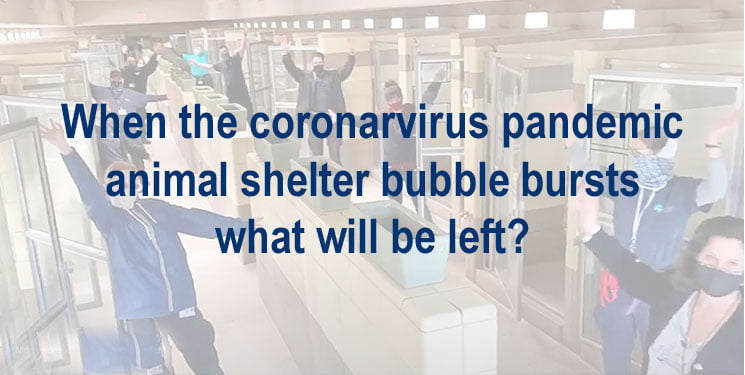ANIMAL SHELTERS USA – CORONAVIRUS EFFECT – OPINION: There is a clear message emanating from the Internet about animal shelters in America and there are two aspects to it. One is positive and one is negative. During the coronavirus pandemic, animal shelters have changed the way they operate. Or they have closed due to various factors such as social distancing and to protect staff. The managers of shelters have requested the assistance of residents in the community that they serve. In essence they have ask residents to take the burden from them with respect to cats and dogs that would normally be taken to a shelter.

In other words they have asked them to look after the animals themselves either by increased adoptions or fostering. This has led, on occasions, to shelters being emptied entirely. It is a temporary but euphoric state of affairs. The work carried out by some shelters has been handed back to the community at large, which is the way it should be. In an ideal world there shouldn’t be any animal shelters. The community should manage animal welfare themselves.
However, this can’t last. It is a temporary state of affairs; a sort of bubble created by this extraordinary crisis. This is because many citizens have the time on their hands to be foster carers for animals as they are temporarily unemployed because their businesses have closed down during the crisis. There’s been a massive increase in adoptions as well and the reason is partly because those people who had put off adopting a cat or dog have now taken on the responsibility having been prompted by being alone during lockdowns. Companion animals are great helpers during this sort of crisis.
But there is a hint of what is to come in terms of donations. Some shelters are suffering from much reduced funding in part because they are unable to use fundraising events, which bring together many people, due to social distancing. A shortage in donations is likely to occur in the future for a considerable time. The reasons are pretty obvious namely that family budgets will be tightened as they burn through savings over lockdowns or they’ve lost their job or they generally feel less secure financially and don’t feel that they are in a position to make charitable donations.
This uncertainty for the future regarding donations is compounded by the possibility that many of the companion animals adopted out during the crisis will be handed back to shelters at the end of it. There will always be a certain number of returns to shelters after adoptions but the numbers may increase. It appears that there is nervousness in some shelters on this issue. The future is precarious for some.
In conclusion, we can take positives and negatives from the Covid-19 crisis. The overwhelming positive is that citizens are pulling together in a new found camaraderie. There is increased altruism and community spirit. There is less self-interest and less competition between people as is the case in times of great difficulty. But when it is over there will be less money and more austerity. The warm glow of mutual support will fade away and shelters may be in a worse position than they were before the pandemic struck.

